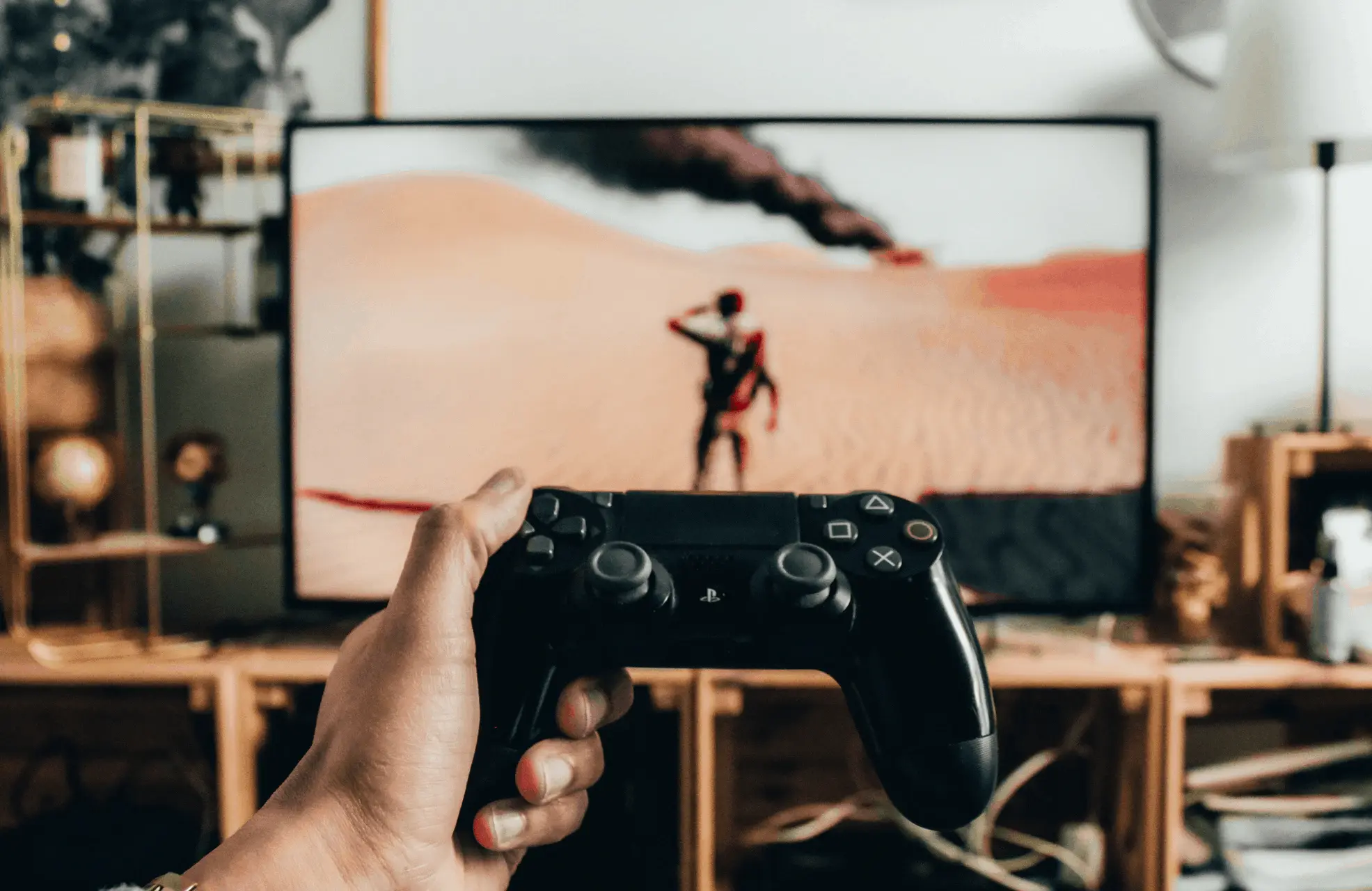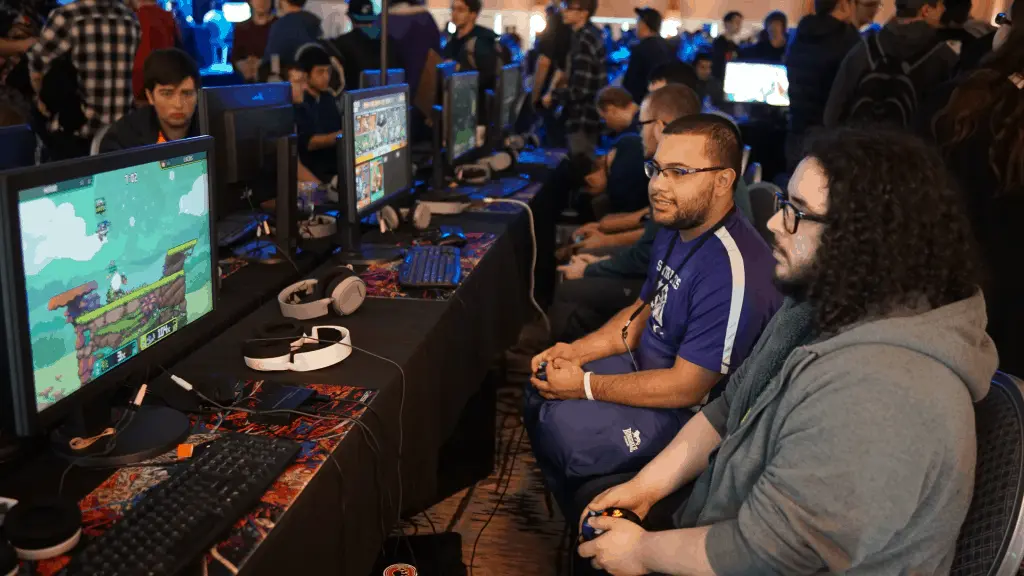What the world of gaming can teach you about building community cohesion
23.04.2020 | 9 min read

One of the industries least affected by the coronavirus pandemic is, without doubt, the gaming industry. While most businesses are suffering as stocks plummet, some gaming companies are seeing the biggest gains that they’ve experienced for years. On March 15, the record was broken on the largest Steam digital distribution platform – as many as 20 million users logged in simultaneously. According to data from the week of 16 March, sales of video game consoles recorded a gigantic 155% increase. In those seven days alone, Sony, Microsoft, and Nintendo sold a total of over 259,000 PlayStation 4, Xbox One and Switch devices.
Playing video games has been indicated by WHO as a healthy method of staying in touch with others during social isolation. As many as 60 companies from the gaming industry got involved in the campaign under the hashtag #PlayApartTogether, including major publishers such as Ubisoft or Activision Blizzard.
For video game lovers, the current situation has not caused any drastic changes in the way they live and enjoy their hobby. We can even learn from them how to maintain a clean and engaged online community, examples of which I decided to present in this blog post.

Despite the distance, players remain in constant contact
Probably no other entertainment industry has as many dedicated online platforms as gaming. From a separate section on YouTube, or streaming platforms such as Twitch – through to a special Discord messenger, reminiscent of Slack’s functionality, but with much easier access from the outside. It is worth mentioning that as part of the fight against the Discord pandemic, the Go Live streaming limit was raised from 10 to 50 people. This is due to the fact that Discord is such a good communicator that people use it for work – in Poland some schools have even decided to conduct online lessons through it, also due to the fact that it is well known and liked by young students.
Friendships made through online gaming can last for years and often go beyond the virtual world. There are even some love stories in the media featuring couples who met in MMOs. I’ve personally come into contact with a lot of great people playing World of Warcraft – I still keep in touch with one of my guildmates after all these years and we occasionally meet for a beer in real life.
So what can we learn here?
There’s a lot to be said about providing your business with the right tools for remote communication if you don’t already have them in place. It’s worth thinking outside the box. You might even consider creating a custom social platform for your community. Gamers show that in interpersonal relationships it does not matter so much whether they meet online or face to face – communities can also be nurtured remotely and this method should not be seen as inferior. The coronavirus pandemic has contributed to the forced transition to remote work mode for many companies around the world. Some business owners have even gone as far as to say that it highlights the fact that most office meetings are unnecessary, or at least they can be done online.
Players can be above divisions
Although the phenomenon of so-called ‘fanboys’ of data gaming consoles still features in the gaming environment, times of open war between lovers of various equipment are long gone. In the 1990s, the term ‘console wars’ was coined, but today, although the competition is still there, we can see many examples of cooperation. The latest positive trend is the emphasis on crossplay, i.e. the ability to play online games together even between releases on various hardware platforms. Ties in this area have primarily strengthened Microsoft and Nintendo. The giant from Redmond has released the popular Minecraft on the Switch console, ensuring it is compatible with the Microsoft account and versions for PC and Xbox One.
There are no such things on the smartphone market, for example. Apple is still fighting Google, and every other manufacturer wants to have its own ecosystem. It is worth noting that it’s the players who are primarily fighting for crossplay. In 2018, there was loud talk about community pressure on Sony to unlock PS4 owners from playing the super popular Fortnite game with players from other platforms.
So what can we learn here?
Even if we have conflicting interests on a daily basis, it is beneficial to everyone to unite on common matters. This applies even to competitors operating in some industry, and is particularly important in times of economic crisis. After all, the world is a network of connected vessels.
Everyone can be equal in the world of gaming
In virtual reality, there are no racial or cultural divisions – players exist on an equal footing. They are also involved in charity. For example, regular sales of games are carried out as part of the Humble Bundle campaign, whereby buying games you can decide whether the money is to go to the publisher or to charities.
Microsoft has created a special advanced controller for people with disabilities. By default, it is designed for the Xbox One, but it also works on the PC, and even Nintendo has made sure that it is also compatible with the Switch console.
There are also many examples of giving parts to dead players, game developers and people from the world of geek culture in virtual worlds. Most of these examples can be pointed out in World of Warcraft, where you can even find a genie inspired by comedian Robin Williams, who was a great fan of games privately.
So what can we learn here? Another example of why collaboration is useful and productive – it’s now more important than ever to embrace our collective knowledge and to reach out to our contacts in other companies, sectors and countries to see how we can work together for mutual gain. While businesses will be affected in different ways by the pandemic, we are all united in the global economic impact of COVID-19.
Crowdfunding really works
Although on sites such as Kickstarter anyone can raise money to implement any idea, it is the involvement of the community of players that leads to the most spectacular collections. Lovers of the Shenmue series are an example. The iconic Japanese action-adventure games were abandoned by SEGA in 2001. But players pressed the Japanese for nearly 15 years to decide to continue the story. Even traditional postal items containing small plastic toys were sent to the company’s headquarters, which was a reference to items that we can collect at Shenmue.
When in 2015 the author of the game, legendary Yu Suzuki, announced a collection on Kickstarter to create the long-awaited third part, the fans simply went crazy. Shenmue III became the fastest game to raise $1 million in crowdfunding. It took an hour and 44 minutes, and the game also became the fastest to raise $2 million, in eight hours and 43 minutes – which was a minimum required amount to realize the project.
Thanks to such collections, many iconic classics, and their spiritual successors returned to the market. Famous artists could abandon corporations and start their own small studios. Very few industries can boast such support for creativity, possible thanks to the involvement of the community.
So what can we learn here?It’s a simple, but important lesson of backing causes that you believe in, even if you think they might have little impact. In the UK recently, a campaign started by a 99 year old man, initially set out to raise £1,000 for the NHS during the pandemic, has reached more than £28 million within the space of two weeks, because enough people got behind it. Is there something your business strongly stands for? Now might be the right time to shout about it.
A community of gamers is very creative
Players don’t just consume content. Thanks to their involvement, numerous fan-made patches and game modifications have come into existence, and entire remakes have even been created. A good example is Black Mesa, a remake of the cult game Half-Life, created by a group of enthusiasts – it was released with the blessing of the original game developers from Valve, the owner of the Steam platform.
Every day, game fans create a whole lot of movies, comics, stories, and illustrations. Many start their careers in the industry in this way when they are noticed by game developers who invite them to cooperate. It is the norm that players often work with developers at the testing stages – the Steam Greenlight formula has become popular, i.e. selling games that are still in production, where fans have the opportunity to have a real impact on the final product. Many manufacturers of traditional application software could learn this approach because listening to users is the foundation of good User Experience.
So what can we learn here? Necessity is the mother of invention, as the saying goes. If you have the means, use this time to take stock of what is important for your business and to innovate. We’re told that the world will never be the same again, even after the pandemic subsides, so we must adapt to it and create lasting solutions to benefit business and society.
Gamers are aware consumers
Despite the examples of great commitment mentioned above, players are deeply aware of the actions of producers and publishers. The industry knows many spectacular failures due to producers misunderstanding customers.
An example is Microsoft, which planned the Xbox One console to prevent exchanges between users of used games, which was to be implemented, among others by logging in every 24 hours online. Consumer response was so drastic that it ultimately led to Microsoft losing its market share for a whole generation of players, and the dominance of PlayStation 4, despite the fact that the draconian solutions were not introduced.
Another example is the widespread reluctance to micropayments in regular, paid games. After the premiere of Star Wars Battlefront II, players were so vocal in urging the boycott of this game online that the European Union became interested in the matter. Today, as a result of those events, in Belgium the so-called loot boxes, i.e. virtual boxes with random prizes, are simply illegal.
So what can we learn here? The lesson here is that we should always keep the end user in mind. If we’re doing something for obvious personal profit, at the cost of benefitting the user, this will be discovered eventually – and the losses incurred in the process often far outweigh the short term gains.

Gamers know how to celebrate their passion
Finally, one more important aspect is worth mentioning – players love celebrating their passion and uniting around individual productions. Just two weeks ago, we had the premiere of the Final Fantasy VII remake – a game originally released in 1997, i.e. 23 years ago. The amazing hype that accompanied this premiere clearly shows that in the gaming world there will always be a memory of the greatest classics that can even bring generations together. Both new players and those who, like me, remember the original, will enjoy the remake. Such unity definitely gives us all food for thought.
So what can we learn here? In difficult times, it’s hard to focus on the positives. So make sure that you still make time in your business to celebrate successes, check in with your employees, and remember what brought you all together in the first place.



